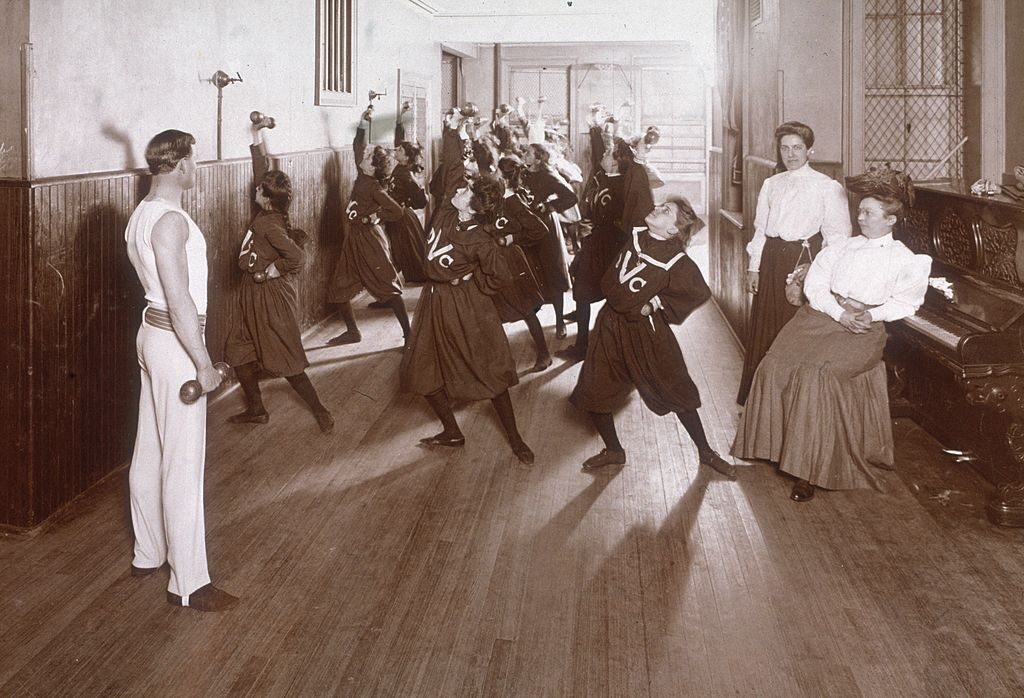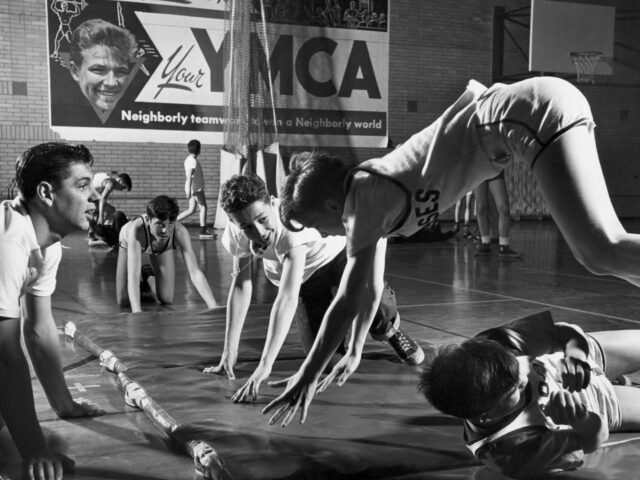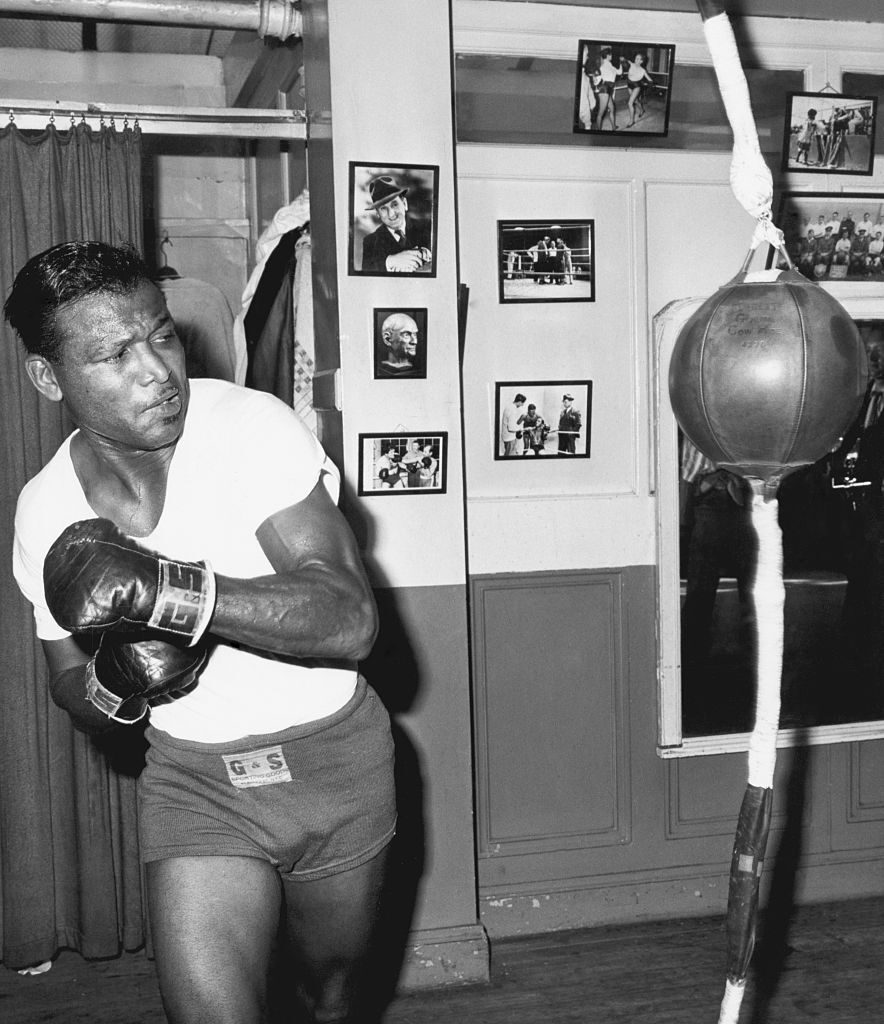Early 20th century pushes for exercise in the U.S. stemmed from “white supremacy” in order to produce “more white babies,” according to a TIME Magazine piece that also blamed the coronavirus pandemic for having “accelerated fitness inequality,” and alleged it is wrong to presume that fat people are “not fit” or that they “want to lose weight.”
The essay by staff writer Olivia B. Waxman, titled “The White Supremacist Origins of Exercise, and 6 Other Surprising Facts About the History of U.S. Physical Fitness,” describes the evolution of U.S. exercise trends, which allegedly began with “reinforcing white supremacy.”
The White Supremacist Origins of Exercise, and 6 Other Surprising Facts About the History of U.S. Physical Fitnesshttps://t.co/SRwSLRpnCV
— TIMEHistory (@TIMEHistory) December 28, 2022
In a conversation with the news magazine, exercise historian Natalia Mehlman Petrzela, a professor at the New School in New York City, discussed the matter, which is a featured topic in her new book, “Fit Nation: The Gains and Pains of America’s Exercise Obsession.”
Discussing how Americans went from a mentality of “fat is good” to “skinny is better,” Mehlman Petrzela noted that her intention in writing the new book was to “look at the change in how we think about our bodies and what’s considered attractive.”
“Until the 1920s or so, to be what would be considered today fat or bigger, was actually desirable and actually signified affluence—which is like the polar opposite of today, when so much of the obesity epidemic discourse is connected to socio-economic inequality and to be fat is often to be seen as to be poor,” she said.
She claims the switch happened when “caloric food became more accessible, and as more people were doing sedentary white-collar work and had access to cars and leisure,” leaving someone “who could resist those caloric foods, exercise, and have a thin body” to be seen as “more desirable.”
Deeming it the “most surprising” matter she learned during her research, Mehlman Petrzela claimed that while early twentieth century fitness enthusiasts called for women to rid themselves of corsets (because they are an “assault on women’s form”) and to begin weightlifting and body strengthening, it was not due to a “progressive” approach but rather to “white supremacy.”
“[T]hey’re saying white women should start building up their strength because we need more white babies,” she said.

File/1905: Full-length view of young women stretching with dumbbells during a gymnasium class presided over by a male instructor and two women at a piano, Christ Church House, 228 West 35th Street, New York City. (Museum of the City of New York/Byron Collection/Getty Images)
“They’re writing during an incredible amount of immigration, soon after enslaved people have been emancipated,” she added. “This is totally part of a white supremacy project.”
Claiming that gym usage has been “rebounding rapidly” since recent coronavirus lockdowns, Mehlman Petrzela lamented how much the pandemic “accelerated fitness inequality.”
“You can go home and be on your Peloton if you can afford it, if you have the space for it, but not everyone can,” she said.
She also noted that running “access,” too, “was never totally equal,” for example, “if you lived in a neighborhood that didn’t have safe streets or streets that were not well lit.”
“Women were catcalled. People of color were thought to be committing a crime,” she said.
“The ‘running is for everybody’ discourse still quite often leaves out the fact that depending on where you live and the body that you live in, it can be a very different kind of experience,” she added.
She then described the influence of former exercise guru Richard Simmons as “really important in terms of shifting who was welcome in gyms.”
“Today, you see quite a few fat people in the fitness industry, who are operating from a better perspective, which is that your body size does not necessarily dictate your fitness level,” she said.
“We should not presume that because you are fat, that you are not fit or that you want to lose weight,” she added. “And I think that we probably couldn’t have had that without Richard Simmons.”
In response, many mocked the recent TIME essay.
“The only way to fight against the white supremacy roots of exercise is by leading a sedentary life,” wrote professor and author Gad Saad.
“Say no to exercise as a means of being an ally to people of color,” he added.
Precisely. The only way to fight against the white supremacy roots of exercise is by leading a sedentary life. Say no to exercise as a means of being an ally to people of color.https://t.co/uAmdRSjXvf
— Gad Saad (@GadSaad) December 29, 2022
“Exercise is now racist. We are doomed,” wrote science journalist and best-selling author Max Lugavere.
Exercise is now racist.
We are doomed. https://t.co/hcZDl0wnQb
— Max Lugavere (@maxlugavere) December 30, 2022
“LOL exercise is white supremacist now too,” wrote author and conservative commentator Dr. James Lindsay.
LOL exercise is white supremacist now too https://t.co/pwca7OqrEi
— James Lindsay, SPLC's top Christian Nationalist (@ConceptualJames) December 29, 2022
“Paging @TheBabylonBee, they are stealing your content,” wrote conservative comedy duo Kevin Hodge and Keith Hodge, better known as the Hodgetwins.
Paging .@TheBabylonBee, they are stealing your content
— Hodgetwins (@hodgetwins) December 29, 2022
“The attack on fitness continues,” wrote fitness podcaster Sal Di Stefano. “Unhealthy people are easier to manipulate.”
The attack on fitness continues. Unhealthy people are easier to manipulate.
— Sal Di Stefano (@mindpumpsal) December 29, 2022
“Be fat unless you support white supremacy,” tweeted one Twitter account.
Be fat unless you support white supremacy. https://t.co/SyzOk0peSA pic.twitter.com/6REI1bDV5a
— Leftism (@LeftismForU) December 29, 2022
The essay comes as the push to lose weight is somehow tied to racism, and obesity continues to be encouraged by many on the left and in the entertainment industry despite it being a condition that puts adults of any age at an increased risk of severe illness, according to the Centers for Disease Control and Prevention (CDC).
The heightened concern about black women's weight reflects the racist stigmatization of their bodies. It also ignores how interrelated social factors impact black women’s health. https://t.co/sqVv8wpHyJ
— Scientific American (@sciam) December 28, 2022
On Wednesday, Scientific American posted an essay claiming the fight against obesity is rooted in “racism” and that black women “consistently experience weightism in addition to sexism and racism,” while arguing that the prescribing of “weight loss” has “long since proved to be ineffective.”
Follow Joshua Klein on Twitter @JoshuaKlein


COMMENTS
Please let us know if you're having issues with commenting.